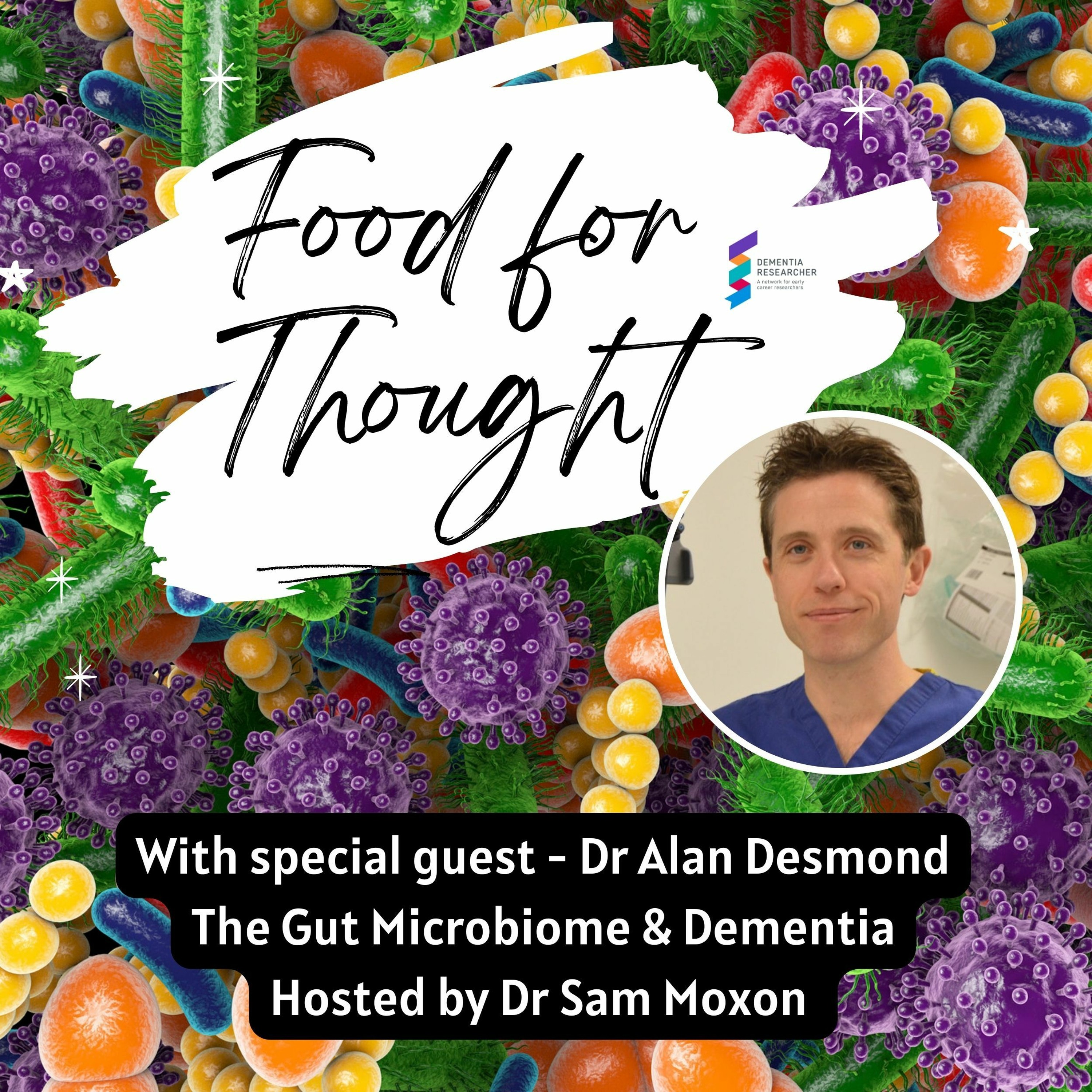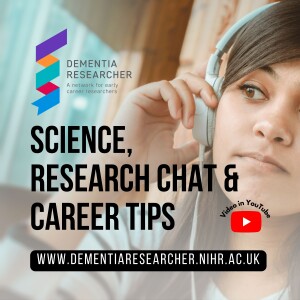
Food For Thought - The gut microbiome and Dementia with Dr Alan Desmond
 2021-11-08
2021-11-08
Download
Right click and do "save link as"
In this show staff blogger Dr Sam Moxon returns to host another podcast on the theme of ‘Food for Thought’ interviewing people who can shed light on the links between food and brain health.
In this episode, he talks with author and Consultant Gastroenterologist, Dr Alan Desmond, discussing the links between the gut microbiome and dementia. Can the billions of bacteria that occupy your gut really have an impact on your brain? They explore the gut microbiome, why it's important, and delved into some of the recent scientific breakthroughs of how changes in the bacteria of your gut can possibly directly cause the progression of dementia.
Dr Alan Desmond is a Consultant Gastroenterologist. Certified in both Gastroenterology and General Internal Medicine, he completed his specialist training in Cork, Dublin and Oxford. He has years of experience in diagnosing and treating patients with digestive problems; including coeliac disease, diverticular disease, irritable bowel syndrome, Crohn's disease and ulcerative colitis.
Dr Alan really enjoys cooking and eating a varied, whole food, plant-based diet – and it is this passion that led him to write the book “The Plant Based Diet Revolution”. He is a member of the Royal College of Physicians, and founding advisory board member for Plant-Based Health Professionals UK, a Charitable Organisation that works to improve education and awareness of the benefits of a healthy plant-based diet.
Follow Dr. Alan on Instagram. (Instagram)
www.instagram.com/dr.alandesmond/
The Plant Based Diet Revolution by Dr. Alan Desmond (Amazon)
http://amzn.to/3q4Gsy7
Food for thought - Eating for Brain Health, Dr Neal Barnard (Podcast)
http://bit.ly/3q0txx7
You can find out more about our guests, and access a full transcript of this podcast on our website at https://www.dementiaresearcher.nihr.ac.uk/podcast
Register on our website to receive your weekly bulletin, and to access more great content – blogs, science, career support + much more https://www.dementiaresearcher.nihr.ac.uk
This podcast is brought to you in association with Alzheimer's Research UK and Alzheimer's Society, who we thank for their ongoing support.
view more
More Episodes
ISFTD Conference 2022 Highlights
 2022-11-28
2022-11-28
 2022-11-28
2022-11-28
Design & development of Tech Interventions
 2022-11-09
2022-11-09
 2022-11-09
2022-11-09
DISTINCT & Tech Interventions
 2022-11-07
2022-11-07
 2022-11-07
2022-11-07
Alzheimer Europe Conference Roundup 2022
 2022-10-24
2022-10-24
 2022-10-24
2022-10-24
How to create a Narrative CV
 2022-10-10
2022-10-10
 2022-10-10
2022-10-10
How to be a GREAT Peer Reviewer
 2022-09-26
2022-09-26
 2022-09-26
2022-09-26
Methods Matter - Surveys & Questionnaires
 2022-09-12
2022-09-12
 2022-09-12
2022-09-12
Methods Matter - Visual & Creative Methods
 2022-09-12
2022-09-12
 2022-09-12
2022-09-12
Methods Matter - Focus Groups
 2022-09-12
2022-09-12
 2022-09-12
2022-09-12
Methods Matter - Grounded Theory
 2022-09-12
2022-09-12
 2022-09-12
2022-09-12
AAIC 2022 - Day Four
 2022-08-04
2022-08-04
 2022-08-04
2022-08-04
AAIC 2022 - Day Three
 2022-08-03
2022-08-03
 2022-08-03
2022-08-03
012345678910111213141516171819
Create your
podcast in
minutes
- Full-featured podcast site
- Unlimited storage and bandwidth
- Comprehensive podcast stats
- Distribute to Apple Podcasts, Spotify, and more
- Make money with your podcast
It is Free
- Privacy Policy
- Cookie Policy
- Terms of Use
- Consent Preferences
- Copyright © 2015-2024 Podbean.com





